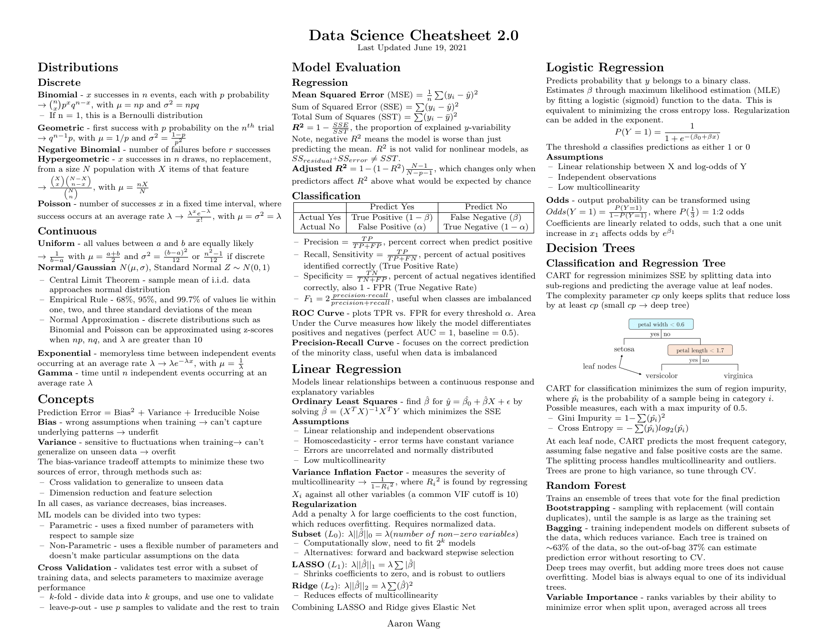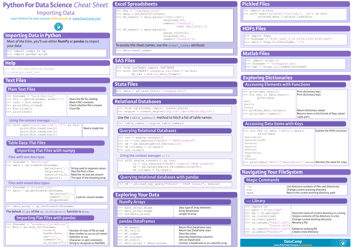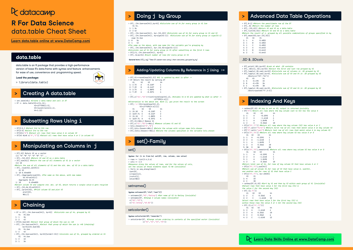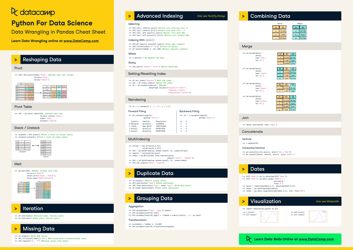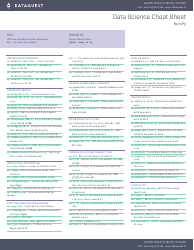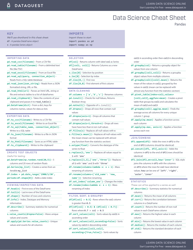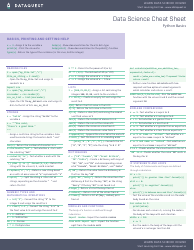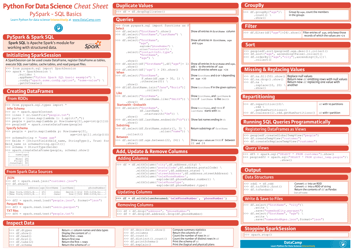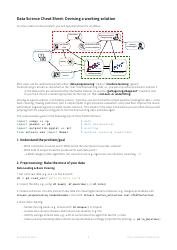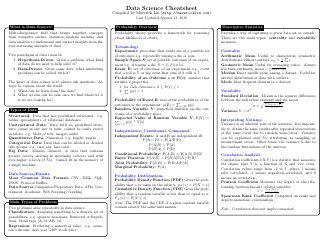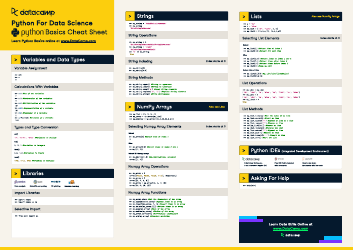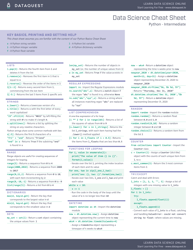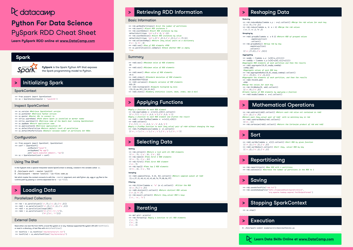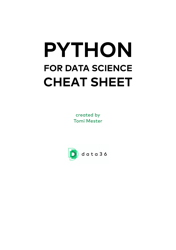Data Science Cheatsheet
The Data Science Cheatsheet is a resource that provides quick references, formulas, and key concepts related to data science. It is intended to help practitioners in the field of data science access important information and techniques in a concise and convenient manner.
FAQ
Q: What is data science?
A: Data science is a multidisciplinary field that uses scientific methods, processes, algorithms, and systems to extract knowledge and insights from structured and unstructured data.
Q: What are the important skills for a data scientist?
A: Key skills for a data scientist include programming, statistical analysis, data visualization, machine learning, and domain knowledge.
Q: What is machine learning?
A: Machine learning is a subset of artificial intelligence that focuses on enabling machines to learn and make decisions without being explicitly programmed.
Q: What are some common programming languages used in data science?
A: Common programming languages in data science include Python, R, and SQL.
Q: What is a data visualization?
A: Data visualization is the graphical representation of data that helps to uncover patterns, trends, and insights.
Q: What is big data?
A: Big data refers to large and complex datasets that cannot be easily managed, processed, or analyzed using traditional data processing techniques.
Q: What is data cleaning?
A: Data cleaning, also known as data cleansing or data scrubbing, is the process of identifying and correcting or removing errors, inaccuracies, or inconsistencies in datasets.
Q: What is predictive analytics?
A: Predictive analytics involves using historical data and statistical techniques to make predictions and forecast future events or outcomes.
Q: What is a data scientist?
A: A data scientist is a professional who uses scientific methods, algorithms, and tools to analyze, interpret, and extract value from data.
Q: What are some ethical considerations in data science?
A: Ethical considerations in data science include privacy protection, data security, bias detection and mitigation, and responsible use of data.
